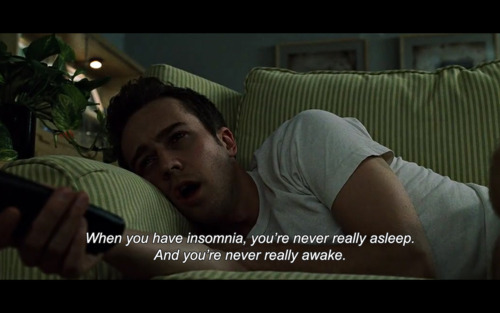Between May 2012 and April 2013, my family lost four people and a co-worker committed suicide.
My job at a community health center was challenging when things were going well and difficult when they weren’t. My 17 year old daughter was suffering from depression. Consequently, I averaged three to four hours of sleep per night.
I’m not sure how I managed to drag myself through every day. My memory was like Swiss cheese, my temper was short, I made some questionable decisions. I was prescribed Ativan, an anti-anxiety medication, which only made me more anxious. A few times a week I used Ambien, a sleep aid, but didn’t want to become dependent. I saw a counselor a few time a month for a while. My therapist was great but I still didn’t sleep. I was terrified that I would make a serious mistake at work.
Thankfully, that time has passed and the everyday challenges are not quite as difficult as that year, but I still go through periods when I have difficulty sleeping, usually when there is something stressful going on in my life. The nights are incredibly long and the next day is even longer. Sunday nights are usually the worst, when I start thinking about patients that will come in the next day and what’s coming up in the week ahead. I lay in bed for hours staring at the ceiling.
It’s estimated that 50-70 million American adults have a sleeping or wakefulness disorder such as insomnia, sleep apnea, or restless leg syndrome, with 35% of us getting less than seven hours of sleep per night, the minimum number of hours we need to be healthy (1).
We’re finding out how important sleep is to our bodies: chronic lack of sleep can lead to stroke, high blood pressure, diabetes and heart disease. Insomnia makes it difficult to lose weight and is associated with increased risk of dementia. Drowsy driving causes approximately 56,000 car accidents a year with an average of 1,500 deaths and 40,000 non-fatal injuries (2).
In Primary Care medicine we give standard recommendations for “sleep hygiene”:
1. avoid nicotine, caffeine and alcohol
2. make the evening meal light
3. get regular exercise in the morning
4. turn off the screens an hour or so before bed
5. create a bedtime ritual that let’s your body/mind know that it’s time to get some rest.
Those are all great suggestions for setting up a healthy sleep environment. But what if that doesn’t work? Have you been backed into a pharmaceutical corner?
Over the last few years there has been some interesting research in positive psychology that shows that keeping a gratitude journal once a week improves sleep. The reason that the researchers gave was that gratitude decreases pre-sleep cognition (3). That’s a fancy way of saying that recognizing what you have to be grateful for helps turn off the mixed-tape of anxiety that is playing in your brain, allowing you to get a good night’s sleep.
They also found out that counting your blessings once a week was more effective than making a daily list, probably because the daily count started to feel like a chore rather than a joy.
The other non-medication approach is mindfulness. It turns down the volume on the stress and anxiety, allowing the mind and the body to relax. A study done at the University of Minnesota (4) showed that people with chronic insomnia who went through the Mindfulness Based Stress Reduction course had improved sleep which was equivalent to people who used pharmaceuticals to aid with sleep.
I am currently working my way through the MBSR course online and have noticed a definite improvement in the quality of my sleep. In fact, I usually have difficulty staying awake during the guided meditation. The instructors of the course mentioned that this is a regular occurrence for people who are not getting enough rest or who have a tendency to avoid difficult emotions. My drift into dreamland is probably a combination of the two. The instructors say not to worry, this tendency will pass with continued meditation practice. Just keep at it and you’ll be both awake and rested.
There are a plethora of guided meditations that can be found on YouTube for free or Sounds True for a fee. Dr. Jon Kabat-Zinn, the man behind MBSR, has recordings of guided meditations for sale on Amazon.
You can also do it on your own without listening to a recording:
Find a comfortable, seated position in a quiet place
Sit up tall, with a strait spine
Breath naturally
Pay attention to the way your breath goes in through your nose, expanding your chest and your belly.
When you notice thoughts arising, acknowledge them without judgement and pull your attention back to your breath.
Set aside 10-15 minutes a day for this practice. Remember that you are not going to be perfect, that your mind will drift and it’s okay. If you stick with this daily commitment to yourself, you’ll get a good night’s sleep with no negative side-effects.
Sources:
1. Insufficient Sleep Is a Public Health Epidemic
2. NCSDR/NHTSA EXPERT PANEL ON DRIVER FATIGUE AND SLEEPINESS
3. Wood, A. M., et al. (2009). Gratitude Influences Sleep through the Mechanism of Pre-Sleep Cognitions. Journal of Psychosomatic Research, 66(1), 43–48.
4. Brief Summary of Mindfulness Research.
Relephant:
The 3 Ayurvedic Ground Rules for Restful Sleep.
~
Author: Angela Baumeister
Editor: Travis May
Images: imgarcade.com












Read 0 comments and reply